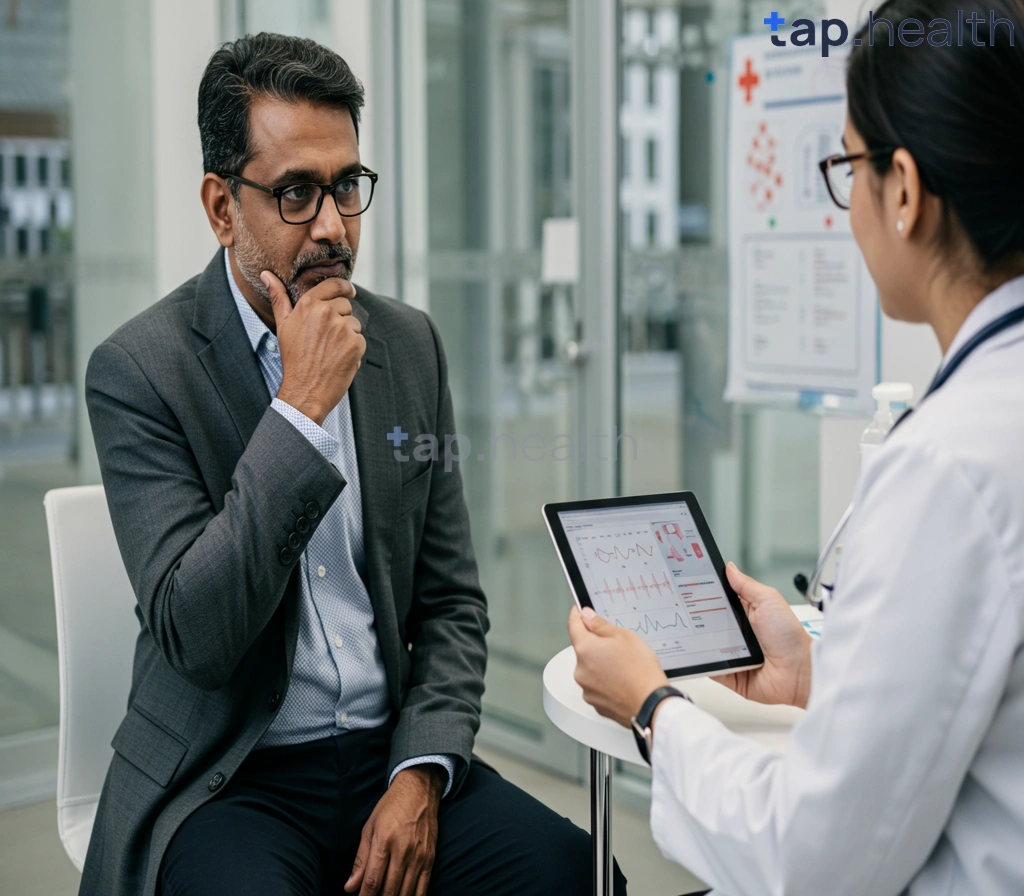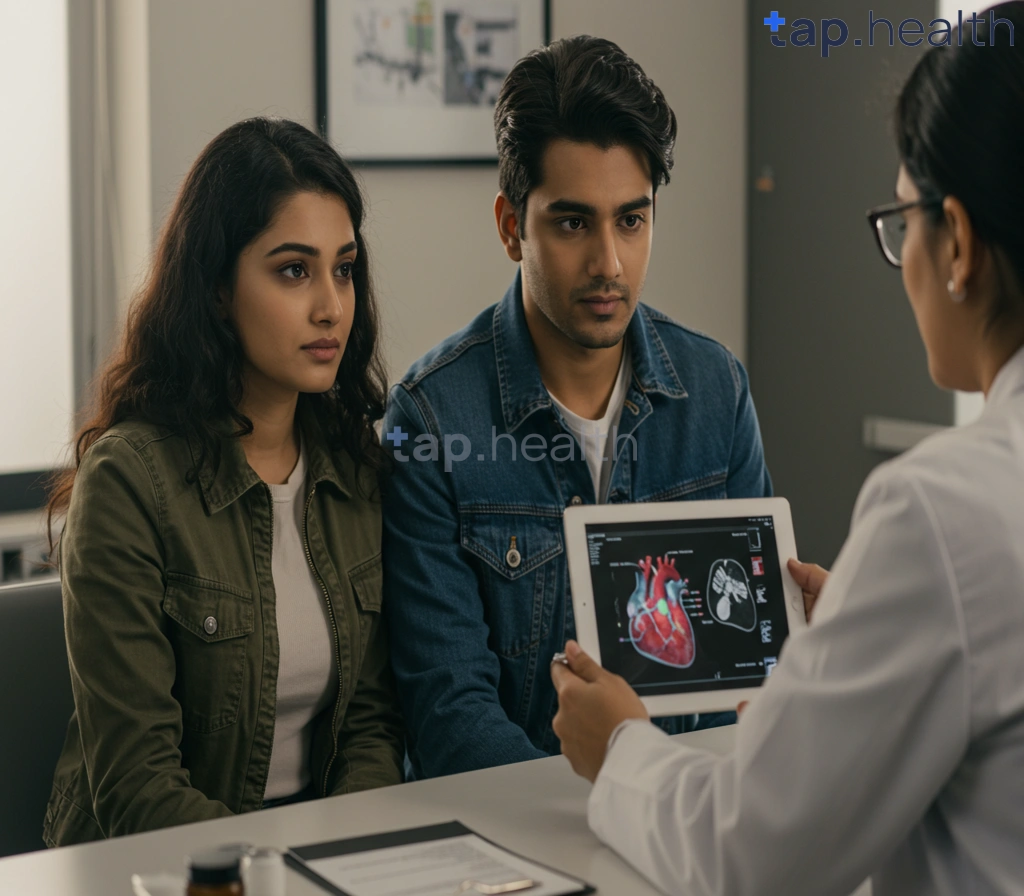Table of Contents
- Decoding Rare Adult-Onset Endocrine Disorders
- Navigating the Diagnostic Process for Endocrine Disorders
- Understanding the Challenges of Rare Endocrine Disease Diagnosis
- Adult-Onset Endocrine Disorders: A Diagnostic Guide
- Key Tests & Procedures: Diagnosing Rare Endocrine Conditions
- Frequently Asked Questions
- References
Navigating the complex world of endocrine disorders can be challenging, especially when dealing with rare conditions that emerge in adulthood. This blog post focuses on Rare Adult-Onset Endocrine Disorders: Understanding the Diagnostic Process, a critical journey often fraught with uncertainty and delays. We’ll explore the common difficulties patients face in receiving an accurate diagnosis, highlighting the importance of persistent advocacy and thorough investigation. Understanding the typical diagnostic steps, from initial symptoms to specialized testing, is crucial for better patient outcomes. Let’s delve into this essential information together and shed light on this often-overlooked area of healthcare.
Decoding Rare Adult-Onset Endocrine Disorders
The staggering statistic that 50% of diabetes cases worldwide remain undiagnosed, as highlighted by the International Diabetes Federation, underscores the critical need for increased awareness of endocrine disorders, particularly those with rare adult-onset presentations. This is especially pertinent in Indian and tropical countries where certain conditions may be more prevalent due to genetic predisposition, lifestyle factors, and environmental influences. Understanding the hormonal intricacies involved can be crucial, as explored in our article, Which Hormone Deficiency is Responsible for Diabetes Mellitus?.
Challenges in Diagnosis
Diagnosing rare endocrine disorders in adults presents unique challenges. Symptoms can be subtle, mimicking those of more common illnesses, leading to delayed diagnosis or misdiagnosis. Furthermore, access to specialized endocrinologists and advanced diagnostic testing may be limited, particularly in underserved regions within India and other tropical countries. This delay in diagnosis can have significant implications for patient health and outcomes. Conditions like Addison’s disease, Cushing’s syndrome, and various forms of hyperparathyroidism often present non-specifically, making early detection crucial.
Prioritizing Early Detection in India and Tropical Countries
Early detection is paramount. Increased awareness among healthcare professionals and the public is vital, focusing on identifying potential symptoms and seeking timely medical attention. This includes educating communities about risk factors, promoting regular health check-ups, and ensuring affordable access to diagnostic services. In regions with limited access to specialized care, telemedicine and mobile health initiatives can play a significant role in bridging the gap and improving early detection rates of rare adult-onset endocrine disorders. Early diagnosis and intervention are key to effective management and improved quality of life for individuals affected by these conditions. Managing these conditions effectively, particularly as we age, presents its own set of challenges. For insights into this, see our blog on Managing Diabetes as You Age: Challenges and Solutions.
Navigating the Diagnostic Process for Endocrine Disorders
The alarming statistic that approximately 57% of individuals with diabetes in India remain undiagnosed highlights a critical challenge in endocrine health, particularly in India and other tropical countries. This underscores the urgent need for improved awareness and efficient diagnostic pathways for rare adult-onset endocrine disorders. Early detection is crucial for effective management and improved patient outcomes. For those diagnosed with diabetes, understanding and managing related challenges like emotional eating is also crucial. For example, learning strategies to Addressing Emotional Eating in Diabetes: Strategies can significantly improve overall health.
Understanding the Challenges
Diagnosing rare endocrine disorders presents unique difficulties. Symptoms can be subtle, mimicking other conditions, leading to delays in diagnosis. Furthermore, access to specialized endocrinologists and advanced diagnostic tools may be limited, especially in rural areas of India and other tropical regions. This disparity in access contributes significantly to the high rates of undiagnosed cases. Limited healthcare infrastructure and financial constraints further complicate the diagnostic journey for many individuals.
Steps Towards Effective Diagnosis
The diagnostic process typically begins with a thorough medical history and physical examination. Blood tests are crucial for assessing hormone levels, followed by imaging techniques like ultrasounds or CT scans in certain cases. Genetic testing may be necessary for some rarer disorders. Seeking consultation with an endocrinologist is vital for accurate diagnosis and personalized management plans. In India and similar settings, building trust with local healthcare providers and advocating for improved access to diagnostic services are crucial steps. Specific dietary considerations, such as the role of dairy, can also impact thyroid health, as detailed in Dairy and Thyroid Disorders: What Science Says.
Taking Action in Your Community
Improving access to endocrine care requires a multi-pronged approach. Increased awareness through public health campaigns, training of healthcare professionals, and government initiatives focused on strengthening healthcare infrastructure are vital steps. Active participation in community health programs and advocating for increased access to affordable healthcare are essential for improving the diagnostic process and the lives of those affected by rare endocrine disorders in India and other tropical countries.
Understanding the Challenges of Rare Endocrine Disease Diagnosis
The staggering global economic burden of common endocrine disorders, such as diabetes costing $760 billion annually, highlights the urgent need for improved diagnostic capabilities. However, this focus often overshadows the significant challenges faced in diagnosing rare adult-onset endocrine disorders in India and other tropical countries. These challenges are multifaceted and impact timely treatment, leading to poorer health outcomes.
Limited Awareness and Access to Specialized Care
One major hurdle is the limited awareness among both healthcare professionals and the general public regarding the symptoms and prevalence of these rare conditions. Many rare endocrine disorders present with non-specific symptoms, easily mistaken for more common illnesses. Furthermore, access to specialized endocrinologists and diagnostic facilities is often restricted, particularly in rural areas of India and other tropical regions. This lack of access significantly delays diagnosis and appropriate management. The impact of delayed diagnosis can be particularly significant for conditions that affect fertility, as highlighted in our article, How Does Diabetes Affect Fertility? Insights and Tips.
Diagnostic Complexity and Varied Presentation
The diagnostic process for rare endocrine disorders is inherently complex. These conditions often involve subtle hormonal imbalances and require specialized testing, including genetic analysis, which may not be readily available in all settings. Moreover, the presentation of these disorders can vary widely among individuals, making accurate diagnosis even more challenging. This necessitates a high index of suspicion from clinicians, requiring advanced training and a thorough understanding of rare endocrine pathology. For instance, understanding the complexities of Polycystic Ovary Syndrome (PCOS) and its varied presentation is crucial. Managing PCOS effectively often involves dietary adjustments, as discussed in Managing PCOS with a Balanced Diet: How to Control Symptoms Naturally.
Developing Robust Diagnostic Strategies
Improving diagnostic capabilities for rare endocrine disorders in India and tropical countries requires a multi-pronged approach. This includes investment in specialized training programs for healthcare professionals, increased awareness campaigns targeting both medical professionals and the public, and expansion of access to advanced diagnostic technologies. Establishing robust referral networks and promoting collaborative research are also crucial steps towards ensuring timely and accurate diagnosis for individuals suffering from these often debilitating conditions. Early and accurate diagnosis is vital for improving patient outcomes and reducing the long-term health and economic consequences.
Adult-Onset Endocrine Disorders: A Diagnostic Guide
Adult-onset endocrine disorders represent a significant challenge in healthcare, particularly in India and tropical countries. A substantial portion of the global population faces these conditions later in life; for instance, 61% of people with diabetes are aged between 20-64 years, highlighting the prevalence of adult-onset endocrine issues. Early and accurate diagnosis is crucial for effective management and improved quality of life.
Understanding the Diagnostic Process
Diagnosing adult-onset endocrine disorders often involves a multi-step approach. It begins with a thorough medical history and physical examination, focusing on symptoms like unexplained weight changes, fatigue, excessive thirst, and changes in bowel habits. Blood tests are fundamental, measuring hormone levels such as thyroid-stimulating hormone (TSH), cortisol, and insulin. Imaging techniques, including ultrasound and MRI, might be necessary to visualize affected organs like the thyroid or adrenal glands. In India and other tropical regions, specific considerations are needed, accounting for potential nutritional deficiencies and prevalent infectious diseases that can mimic or complicate endocrine disorders.
Regional Considerations in Diagnosis
Access to specialized endocrinology services can vary significantly across India and other tropical countries. Early recognition of symptoms is paramount, prompting timely consultation with healthcare professionals. Furthermore, increased awareness among both patients and healthcare providers regarding adult-onset endocrine disorders is vital. This includes understanding the unique challenges posed by prevalent infections and nutritional factors in these regions. A strong emphasis should be placed on preventative measures, including healthy lifestyle choices and regular check-ups, particularly for individuals with a family history of endocrine disorders. Seeking prompt medical attention for suspicious symptoms can lead to earlier diagnosis and more effective management. While many endocrine disorders have distinct presentations, some symptoms can overlap with other conditions. For example, unexplained weight loss could be a symptom of several endocrine issues or, alternatively, a sign of something more serious like pancreatic cancer. Understanding the nuances of diagnosis is crucial for effective treatment, and in some cases, genetic testing may be necessary, as seen in conditions such as Alkaptonuria.
Key Tests & Procedures: Diagnosing Rare Endocrine Conditions
Diagnosing rare endocrine disorders in India and tropical countries often presents unique challenges due to limited access to specialized testing and the prevalence of co-morbidities. The diagnostic process typically begins with a thorough medical history, including family history of endocrine diseases and a physical examination. Early detection is crucial, especially given the potential complications like those seen in diabetes, where nearly 30% of patients develop diabetic nephropathy—a serious kidney disease.
Blood Tests: The Foundation of Diagnosis
Blood tests are fundamental for assessing hormone levels. This includes measuring levels of thyroid hormones (T3, T4, TSH), cortisol, insulin, and sex hormones, depending on the suspected condition. These tests can reveal imbalances indicative of various endocrine disorders. Variations in normal ranges should be considered, depending on age, sex, and geographic location, particularly in tropical climates. For more information on maintaining healthy hormone levels, you might find our article on Vitamins and Minerals Essential for Thyroid Health helpful.
Imaging Techniques: Visualizing Endocrine Glands
Imaging techniques like ultrasound, CT scans, and MRI scans play a vital role in visualizing the endocrine glands (thyroid, adrenal, pituitary) and detecting abnormalities like tumors or cysts. These scans help determine the size and structure of the glands, aiding in diagnosis. Access to these advanced imaging modalities may vary across regions in India and tropical countries, highlighting the need for improved healthcare infrastructure.
Biopsy and Genetic Testing
In some cases, a tissue biopsy might be necessary for further investigation, particularly to confirm the presence of tumors or other abnormalities in the endocrine glands. Genetic testing is becoming increasingly important, especially for identifying the genetic basis of certain rare endocrine disorders, improving diagnostic accuracy and personalized treatment. Access to genetic testing remains a challenge in many parts of the region and requires further investment.
Seeking timely medical attention from an endocrinologist experienced in managing these rare conditions is crucial for achieving the best possible outcomes. Early and accurate diagnosis is essential to initiate appropriate treatment and improve the quality of life for individuals affected by these disorders.
Frequently Asked Questions on Rare Endocrine Disorders
Q1. What are the main challenges in diagnosing rare adult-onset endocrine disorders, particularly in India and tropical countries?
Limited awareness among both the public and healthcare professionals, difficulties in accessing specialized care, and the subtle, often nonspecific symptoms that mimic common illnesses pose significant challenges. High rates of undiagnosed diabetes exemplify this issue.
Q2. Why is early diagnosis of these disorders so crucial?
Early detection is vital for effective management and significantly improves patient outcomes. It helps to reduce long-term health complications and economic burdens.
Q3. What is typically involved in the diagnostic process for rare adult-onset endocrine disorders?
Diagnosis involves a comprehensive medical history review, a thorough physical examination, blood tests to measure hormone levels, and potentially imaging techniques. Genetic testing might be necessary in certain cases.
Q4. What is being done to address the challenges in diagnosing these disorders?
A multi-pronged approach is needed. This includes raising awareness among healthcare providers and the public, improving access to diagnostic services (possibly through telemedicine), and strengthening healthcare infrastructure, especially in underserved areas.
Q5. What are the potential long-term consequences of delayed or missed diagnosis of rare adult-onset endocrine disorders?
Delayed or missed diagnosis can lead to worsening health conditions, reduced quality of life, and increased long-term health and economic consequences for the patient.
References
- Diabetes in Older Adults: A Consensus Report: https://en.iacld.com/UpFiles/Documents/292529019.pdf
- Domain Adaptive Diabetic Retinopathy Grading with Model Absence and Flowing Data: https://arxiv.org/pdf/2412.01203




